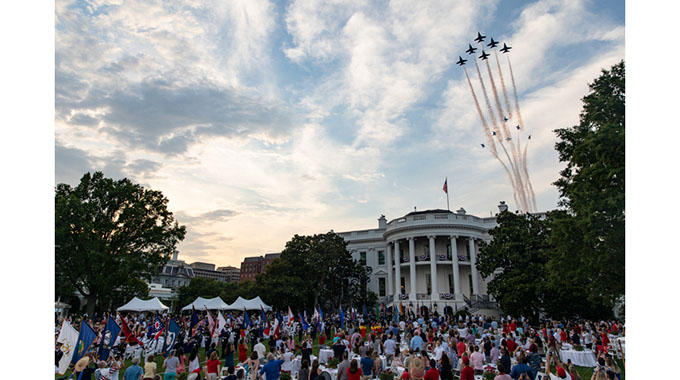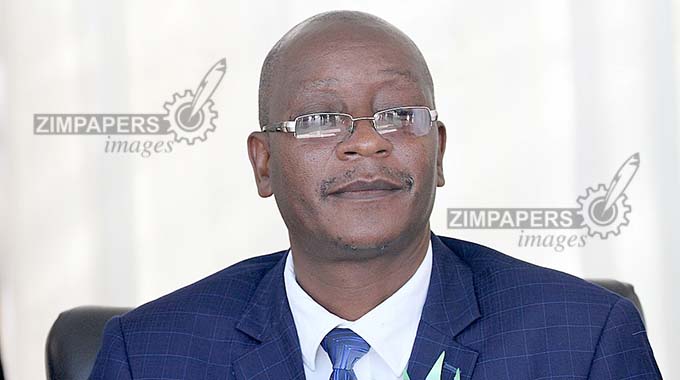American independence, African lesser beings

Ranga Mataire
Writing Back
July 4 is a very important day in the life of every American. It is a day when Americans commemorate their Independence Day. It is a day when Americans from all their diverse backgrounds show patriotic pride in their country.
As a people who bore the brunt of colonial subjugation, we always wish the Americans hearty celebrations on a federal holiday that marks the day in 1776 when the Second Continental Congress unanimously adopted the Declaration of Independence, signalling the official separation of the colonies from Great Britain.
July 4, 1776 is considered America’s “birthday” and this year the country marked 244 years of independence.
According to the Library of Congress, it wasn’t until after the War of 1812 that July 4 was celebrated across the new nation. Congress passed a law making Independence Day a federal holiday on June 28, 1870.
Americans are known for their outlandish lifestyles and pageantry and the day was sure marked by parades, fireworks and parties, though much of the celebrations were subdued due to the coronavirus pandemic.
You see, the United States appears on face value a very aspirational country. A country that seemed certain of itself; a nation conscious of what it is doing, interestingly free of that anything-can-happen existential uncertainty.
But on closer look, America is no longer the same. This is so because some of its leaders seem to have trodden the poetry in the nation’s founding philosophy.
A country born from an inkling for self-determination seems to have fallen in the hands of unstable demagogues.
It is difficult today for anyone to discern policy from mere bluster. The unpredictability is astounding. Things that were at the margins of America’s political discourse — overt racism and glaring misogyny have since crept into the centre making some of its nationals to question the real meaning of independence.
On July 4, BBC’s video journalist Matt Wareham spoke to some black Americans about the meaning of America’s independence to them.
Arielle Gray, a journalist from Boston, argues that the story of American independence is “historically inaccurate” — because slavery in America continued for another 89 years after July 4 1776.
“We have to stop celebrating myths. Fourth of July — Independence Day — is a myth,” added Quintez Brown another black America.
Quintez and Arielle say the story taught to them in school was misleading as Juneteenth, which celebrates the official end of slavery in America, on 19 June 1865 is more appropriate holiday for black Americans to celebrate.
As Africans, we indeed commiserate with our black brothers in America for we know what it means to live in chains. We had hoped that over the years, particularly in post-colonial Africa, America would find it more appropriate to identify with the continent for they understand the brunt of living under colonial conquest.
We had hoped for a new amenable approach when it comes to engaging Africa, but it appears the relations are generally conflictual in nature with America seeking to perpetually entrench its hegemonic influence.
Yet common sense would have demanded that in the post-colonial, post-Cold war and post-communist containment period, relations between Africa and the US should surely be informed by the need for a New International Economic Order based on mutual respect and the sanctity of independence.
It is sad to note that the US foreign policy towards Africa has not evolved from being omniscient to humanistic — moving away from its obsession with blackmailing and blacklisting any “deviant” state through imposition of sanctions or waging regime change wars.
Yet with the full knowledge of its cockeyed foreign policy, especially when juxtaposed with China’s multi-polarity and non-interventionist approach, the US has continued with its headstrong intrusive and fatally destabilising attitude.
Most African nations have readily welcomed China because its presence represents a mix of political and economic incentives, which creates a win-win situation for both sides. China also believes in the sanctity of national sovereignty.
The US has on the other hand not moved from immortalising its elongated self-importance in world affairs. As early as 1782, six years after declaring independence, its writers and poets were waxing lyrical about the US being the “fist nation”.
Ralph Waldo Emerson viewed the formation of the United States as a “last effort of the Divine Providence on behalf of the human race”, and Herman Melville considered his countrymen a “peculiar, chosen people, the Israel of our times; we bear the ark of liberties of the world”. Nothing seems to have changed since then.
The Big Brother thinks he has every right not to respect the independence of other second-rate nations and does all he can including installing pliable regimes in “obstinate” countries.
There is no doubt that African leaders are keen to engage economically with the US, but the leaders are not stupid. There are not blind to America’s obduracy.
Until America re-modifies its domestic policies that promote institutional and systematic marginalisation of black people including remodelling its foreign policy particularly towards countries in the South, July 4 will continue being sneered at not just by outsiders, but its nationals as well.
We are not lesser beings. America must promote global tolerance and diversity as reflected in its racial and ethnic composition.











Comments